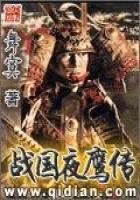His heart was empty and depressed, and he strove again to drive off thought. No feeling of anguish came, neither was there any trace of that fierce energy which moved him when he left the house to "put an end to it all.""What will be the end of it? The result lies in my own will. What kind of end? Ah, we are all alike, and accept the bit of ground for our feet and live. Must this be the end? Shall I say the word or not? Oh, how weary I feel! Oh, to lie down or sit anywhere!
How foolish it is to strive against my illness! Bah! What thoughts run through my brain!" Thus he meditated as he went drowsily along the banks of the canal, until, turning to the right and then to the left, he reached the office building. He stopped short, however, and, turning down a lane, went on past two other streets, with no fixed purpose, simply, no doubt, to give himself a few moments longer for reflection. He went on, his eyes fixed on the ground, until all of a sudden he started, as if some one had whispered in his ear. Raising his eyes he saw that he stood before THE HOUSE, at its very gates.
Quick as lightning, an idea rushed into his head, and he marched through the yard and made his way up the well-known staircase to the fourth story. It was, as usual, very dark, and as he reached each landing he peered almost with caution. There was the room newly painted, where Dmitri and Mikola had worked. He reached the fourth landing and he paused before the murdered woman's room in doubt. The door was wide open and he could hear voices within;this he had not anticipated. However, after wavering a little, he went straight in. The room was being done up, and in it were some workmen. This astonished him--indeed, it would seem he had expected to find everything as he had left it, even to the dead bodies lying on the floor. But to see the place with bare walls and bereft of furniture was very strange! He walked up to the windows and sat on the sill. One of the workmen now saw him and cried:
"What do you want here?"
Instead of replying, Raskolnikoff walked to the outer door and, standing outside, began to pull at the bell. Yes, that was the bell, with its harsh sound. He pulled again and again three times, and remained there listening and thinking.
"What is it you want?" again cried the workman as he went out to Raskolnikoff.
"I wish to hire some rooms. I came to look at these.""People don't take lodgings in the night. Why don't you apply to the porter?""The floor has been washed. Are you going to paint it?" remarked Raskolnikoff. "Where is the blood?""What blood?"
"The old woman's and her sister's. There was quite a pool.""Who are you?" cried the workman uneasily.
"I am Rodion Romanovitch Raskolnikoff, ex-student. I live at the house Schilla, in a lane not far from here, No. 14. Ask the porter there--he knows me," Raskolnikoff replied indifferently, without turning to his questioner.
"What were you doing in those rooms?"
"Looking at them."
"What for? Come, out you go then, if you won't explain yourself,"suddenly shouted the porter, a huge fellow in a smock frock, with a large bunch of keys round his waist; and he caught Raskolnikoff by the shoulder and pitched him into the street. The latter lurched forward, but recovered himself, and, giving one look at the spectators, went quietly away.
"What shall I do now?" thought Raskolnikoff. He was standing on the bridge, near a crossing, and was looking around him as if expecting some one to speak. But no one spoke, and all was dark and dull, and dead--at least to him, and him alone.
A few days later, Raskolnikoff heard from his friend Razoumikhin that those who had borrowed money from Alena Ivanovna were going to the police office to redeem their pledges. He went with Razoumikhin to the office where they were received by Porphyrius Petrovitch, the examining magistrate, who seemed to have expected them.
"You have been expecting this visit? But how did you know that he had pledged anything with Alena Ivanovna?" cried Razoumikhin.
Porphyrius Petrovitch, without any further reply, said to Raskolnikoff: "Your things, a ring and a watch, were at her place, wrapped up in a piece of paper, and on this paper your name was legibly written in pencil, with the date of the day she had received these things from you.""What a memory you must have got!" said Raskolnikoff, with a forced smile, doing his best to look the magistrate unflinchingly in the face. However, he could not help adding: "I say so, because, as the owners of the pledged articles are no doubt very numerous, you must, I should fancy, have some difficulty in remembering them all;but I see, on the contrary, that you do nothing of the kind. (Oh!
fool! why add that?)"
"But they have nearly all of them come here; you alone had not done so," answered Porphyrius, with an almost imperceptible sneer.
"I happened to be rather unwell."
"So I heard. I have been told that you have been in great pain.
Even now you are pale."
"Not at all. I am not pale. On the contrary, I am very well!"answered Raskolnikoff in a tone of voice which had all at once become brutal and violent. He felt rising within him uncontrollable anger. "Anger will make me say some foolish thing,"he thought. "But why do they exasperate me?""He was rather unwell! A pretty expression, to be sure!" exclaimed Razoumikhin. "The fact is that up to yesterday he has been almost unconscious. Would you believe it, Porphyrius? Yesterday, when he could hardly stand upright, he seized the moment when we had just left him, to dress, to be off by stealth, and to go loafing about, Heaven only knows where, till midnight, being, all the time, in a completely raving condition. Can you imagine such a thing? It is a most remarkable case!""Indeed! In a completely raving state?" remarked Porphyrius, with the toss of the head peculiar to Russian rustics.















